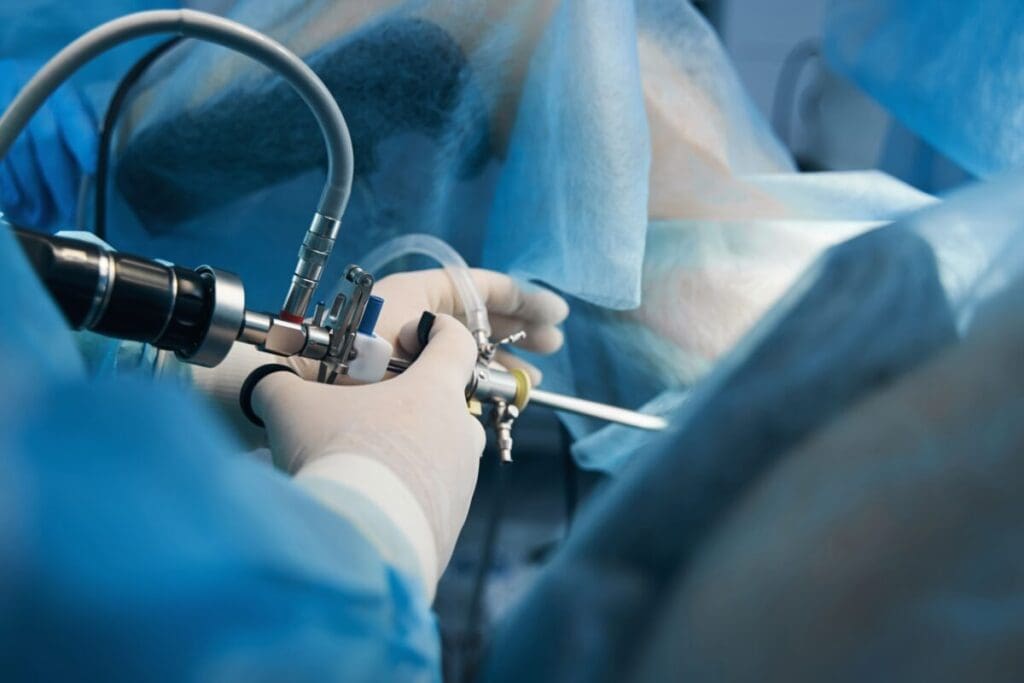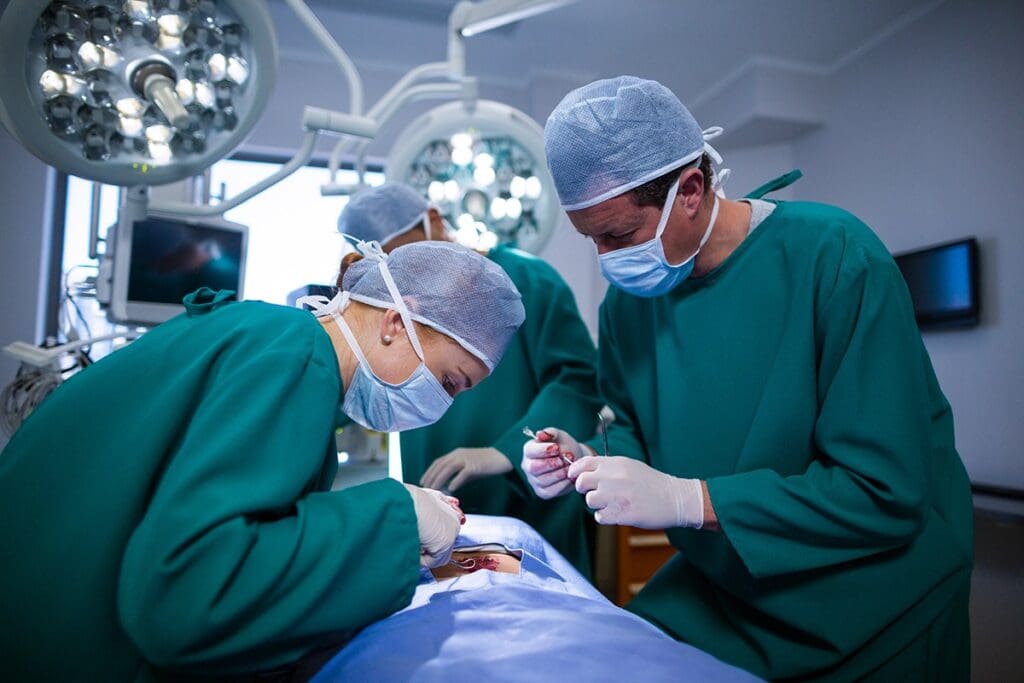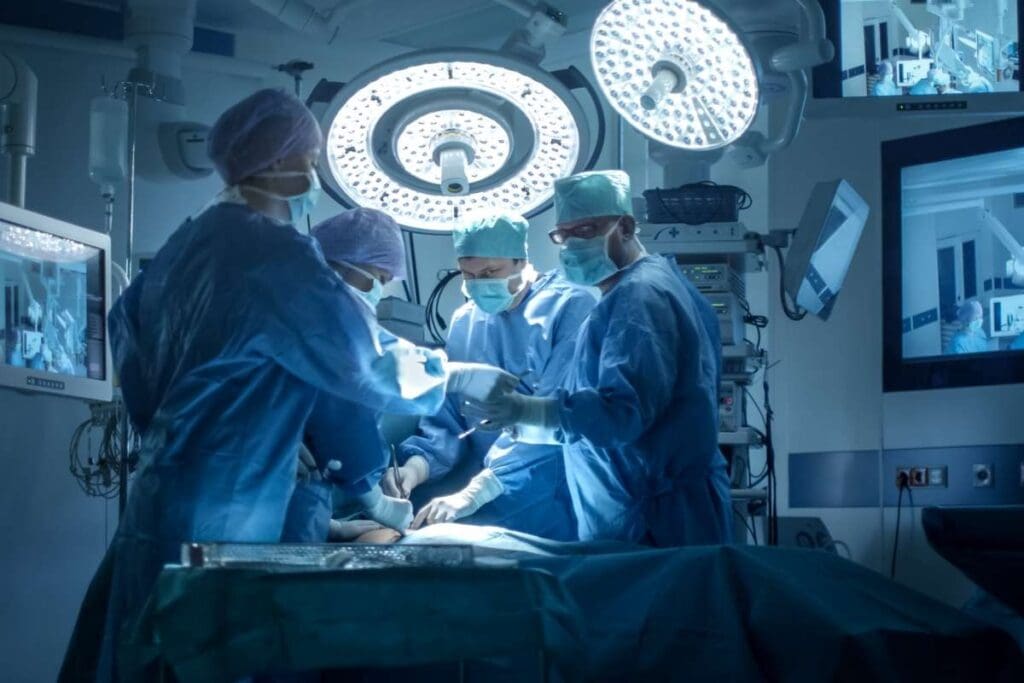Last Updated on November 24, 2025 by
Resection is seen as a major surgery in most cases. It means removing a sick organ or part of tissue. At LivHospital, we handle complex resection surgeries well. This includes bowel resection and colon resection for large intestine diseases.

Colectomy is a surgery to remove part or all of the colon. It’s often done for colon cancer. Our team is committed to top-notch care and support for these surgeries.
Resection is a big deal because it’s a deep surgery that can lead to serious issues. We’ll look at why it’s considered a major surgery.
Resection surgery takes out part of an organ or tissue. It’s used for serious problems like cancer or blockages. Cancer.ca says it’s a common fix for many gut issues.
The surgery can be different, from hemicolectomy to total colectomy. It depends on how bad the problem is.

Deciding if surgery is major or minor looks at a few things:
Resection surgery is major because it’s complex, risky, and takes a lot of time to heal. The Cleveland Clinic says it can change your life, but you need to be ready.
Resection surgery, like colon resection surgery, really affects the digestive system. Patients might need to change their diet and lifestyle after surgery.
Recovering from resection surgery is a big job. It includes:
Knowing this helps patients get ready for surgery and recovery.
It’s important for patients to know about the different colectomy and bowel resection types. These surgeries remove parts of the colon or intestine. The choice of surgery depends on the condition, its severity, and the patient’s health.
A total colectomy removes the whole colon. A partial colectomy takes out only the sick part. Total colectomy is often for ulcerative colitis that covers the whole colon. Partial colectomy is used for colon cancer or localized diseases.
The choice between total and partial colectomy depends on the disease’s extent and the patient’s health. For example, ulcerative colitis patients might get total colectomy to cure it.
Hemicolectomy removes half of the colon, either the right or left side. Sigmoid colectomy, or sigmoid resection, removes the sigmoid colon, the colon’s lower part.

Bowel resection treats colon cancer, diverticulitis, and inflammatory bowel disease (IBD). For cancer, it removes the tumour and healthy tissue around it. This ensures all cancer cells are gone.
For diverticulitis or IBD, bowel resection is for severe damage or disease. It aims to remove the sick part and fix bowel function.
Major resection surgery, like colectomy, comes with big risks and complications. We’ll look at these risks closely. This will help patients make better choices.
Right after surgery, some problems can happen. These include:
Medical studies show that up to 36% of patients face complications. This depends on the surgery’s extent and the patient’s health. For more on colectomy, check Mayo Clinic’s Colectomy page.
After colon resection surgery, long-term effects can affect daily life. These might include:
Knowing these effects is key to managing expectations and improving recovery.
Mortality rates after major bowel surgeries differ based on patient demographics. For older adults, the 30-day mortality rate is between 5–15%. Age, health conditions, and surgery complexity all affect risk.
Readmission rates after surgery can depend on surgeon’s experience. Research shows that more experienced surgeons have lower readmission rates. This highlights the need to pick a skilled surgeon for your surgery.
Knowing how to recover after bowel surgery is key. The journey includes several stages, from right after surgery to long-term care.
Patients usually stay in the hospital for 2 to 4 days after surgery. Our team watches over them closely for any problems. They also manage pain well and focus on proper wound care to avoid infections.
A team of doctors, nurses, and therapists work together. They help with both physical and emotional needs during the stay.
After leaving the hospital, recovery can take weeks to months. It’s important to stick to a recovery plan. This includes pain management, check-ups, and slowly getting back to normal.
Physical therapy is a big part of getting better. Patients start with simple exercises and then do more as they can. Physical therapy helps build strength and improve movement.
Changing your diet is important after colon surgery. Patients should slowly move from liquids to solid foods. They should avoid foods that might cause trouble.
Recovering from bowel surgery takes time, patience, and following doctor’s orders. With the right care and a good plan, patients can get back to normal.
Understanding resection surgery is key for those with colon cancer or ulcerative colitis. Procedures like hemicolectomy and colon removal need expert care. At LivHospital, we follow the latest protocols for the best results.
A successful surgery depends on good preparation and care after the operation. The Canadian Cancer Society and the Cleveland Clinic offer helpful advice. Our goal at LivHospital is to provide top-notch care and support for international patients.
Resection surgery removes part of an organ or tissue. It’s often used for colon cancer. It’s major because it’s complex and requires a lot of recovery time.
Colectomy procedures include total, partial, hemicolectomy, and sigmoid colectomy. Each is chosen based on the colon condition and area affected.
Hemicolectomy removes part of the colon on one side. Sigmoid colectomy targets the sigmoid colon, a part of the large intestine.
Risks include immediate and long-term side effects. Mortality and readmission rates can vary. Surgeon experience plays a big role.
Recovery starts with a hospital stay. It includes physical rehab and adjusting to dietary changes. This helps manage digestive system changes.
Recovery time varies. It can take weeks to months. It depends on the extent and the patient’s health.
Long-term effects include changes in bowel habits and nutritional deficiencies. These may need ongoing management.
Surgeon experience greatly affects surgery success. It influences complication rates, recovery times, and patient outcomes.
After discharge, patients need supportive care. This includes follow-up appointments, dietary guidance, and physical rehab. It ensures a smooth recovery.
Yes, resection surgery treats conditions like ulcerative colitis and bowel obstruction. It’s used for various colon diseases.
Subscribe to our e-newsletter to stay informed about the latest innovations in the world of health and exclusive offers!